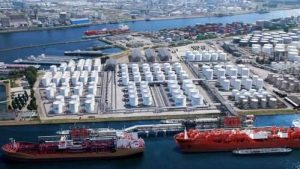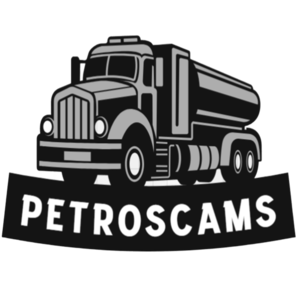Petro Scams
“An international trade transaction which involves several parties – buyer, seller, shipowner, charterer, ship’s master or crew, insurer, banker broker or agent. Maritime fraud occurs when one of these parties succeeds, unjustly or illegally, in obtaining money or goods from another party to whom, on the face of it, he has undertaken specific trade, transport and financial obligations.”
Do not be the victim of a scam. If the offer seems unusual or too good to be true, it probably is.
If you think you might be the victim of a scam, we recommend:
- cross-checking the background of person contacting you;
- critically checking the website to see if it looks professional with adequate contact information, etc.;
- trying other contact opportunities, such as, another telephone number, other e-mail addresses, etc;
- looking for spelling and grammatical errors in the email or website.
 Unfortunately, the sophistication of oil and gas scams has only increased in recent years. Fraudulent proprietors may set up fancy and professional-looking websites, have associates act as references for the claim and even set up documentation that looks like it came from a state or local agency. The best ways to avoid losing your money is to consider the following:
Unfortunately, the sophistication of oil and gas scams has only increased in recent years. Fraudulent proprietors may set up fancy and professional-looking websites, have associates act as references for the claim and even set up documentation that looks like it came from a state or local agency. The best ways to avoid losing your money is to consider the following:
Avoid guaranteed investments – Oil and gas exploration is a notoriously risky venture and there are few, if any, “sure things”. If someone is promising you a guaranteed return on investment, you are likely at risk.
Initial returns aren’t a guarantee of future returns – Most fraudsters are in it for the long haul and know that people often invest more money over time. So even if you see some money at the start, be wary.
Be able to discuss the projects with friends and family, and with professional advisers – The odds that an investment is so good that you have to sign quickly and under pressure are relatively small, close to hitting the lottery. So if you cannot talk about an investment, it’s a huge red flag.
Are the companies well-known to authorities? – The easiest way to verify an oil and gas investment is to see if companies or officials have already done work in the state where they plan to operate. In fact, even if it is a new venture, there should be *some* record of these people having done successful deals in the past.
Why me? – There should be a good reason why you are being solicited for an investment. Have you bought shares in limited partnerships before? Do you have ties to the area or the company? If you don’t, it’s best to remember that there’s no such thing as a free lunch.
